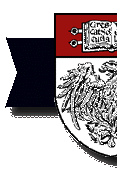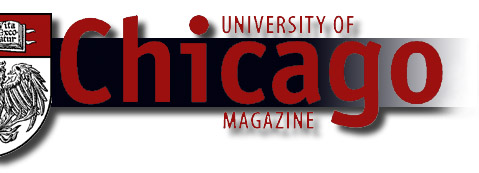|

Poems
in the late afternoon

The tall angular
man leaning back against a wall near the front of the dark-paneled
lecture hall listened with a calm and practiced air as his new departmental
chair—Robert B. Pippin, the Raymond W. and Martha Hilpert Gruner
distinguished service professor in the Committee on Social Thought—introduced
him to the fair-sized crowd scattered about Social Sciences Research
122, its mullioned windows open to the unusually warm late-afternoon
air. It was the last Monday in October, and the occasion was an
Inaugural Lecture in the Social Sciences.
Dressed in
blue jeans, a black collarless shirt, and a black suit jacket, the
gray-haired man heard himself described as a former MacArthur Foundation
fellow, a former Guggenheim fellow, a teacher at universities from
Columbia to Utah—most recently, he’d been the Elliot Coleman professor
of poetry at Johns Hopkins University—and a former poet laureate
of the United States.
Pippin didn’t
say that a few years back the New York Times had called Mark Strand
one of the three best-looking men among contemporary poets. Or that
the poet’s move from Hopkins to Chicago (he was a visiting professor
at the University this past spring) made headlines in Baltimore
and academic gossip columns across the nation. Or that his onstage
demeanor is both assured and wry.
No title had
been announced for Strand’s lecture. Would he speak about the painter
Edward Hopper, on whom he has written a much-admired monograph?
Or on Kierkegaard, the subject of a course that he was teaching
this fall with Jonathan Lear, the John U. Nef distinguished service
professor in the Committee on Social Thought? But the lecture turned
out to be what everyone assembled had hoped it would be: a reading
from his poetry.
More precisely,
from his later poems. “I thought I’d read early poems,” Strand confessed
as he towered above the wooden lectern, cradling a volume in one
hand, “and then I thought, ‘Why do that? I like the later ones better.’”
A rueful pause. “I know that poets are often wrong, mistakenly preferring
their later work—mistakenly in every case except mine.”
Like his listening,
Strand’s reading was simultaneously practiced and natural. His voice,
although quiet and unforced, carried to the room’s far corners,
overriding the chatter of passers-by outside the open windows; the
occasional coughs, sighs, and snores produced by a late-afternoon
audience in an unseasonably warm room; and a barking dog.
With inspired
timing, the strong-throated dog chose to bark as Strand read the
day’s last poem, the first section of “Five Dogs.” (“I, the dog
they call Spot, was about to sing. Autumn/had come, the walks were
freckled with leaves….”) But the canine could have sensed a kindred
soul earlier in the reading, when the poet read “Eating Poetry.”
It begins in a library, with the narrator in a mood of word-stained,
carnivorous glee: “Ink runs from the corners of my mouth./There
is no happiness like mine./I have been eating poetry.”
To the poem’s
sad-eyed librarian, such an excess of exuberance is as out of place
as a bull in a china shop—or as a dog in a library. She screams
as the narrator drops to his knees and licks her hand, but his wild
gladness can’t be chained: “I am a new man./I snarl at her and bark./I
romp with joy in the bookish dark.” Photo Credit: Readers would
be hard put to find an issue from the past seven years without at
least one striking photograph by Dan Dry. With this issue, Dan—who
spent five years with National Geographic, is the official photographer
at Churchill Downs, and can photograph Nobel laureates and cans
of Spam with equal aplomb—joins the Magazine’s masthead as a contributing
editor.—M.R.Y.
|



